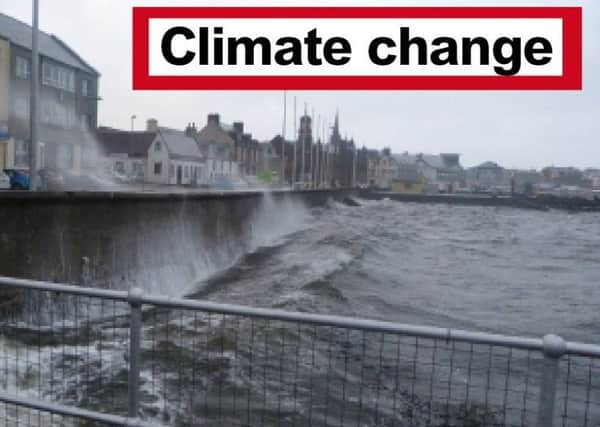Find out your emissions baseline - then we can bring them down


This last year has seen climate change rocket up the agendas of the media.
Five years ago who would have thought The Stornoway Gazette would have a climate change column. Also political, with all major parties committing to action in the general election.
Advertisement
Hide AdAdvertisement
Hide AdOur society has changed, with young people leading the calls for action. Even the BBC changed its editorial line from giving equal balance to the naysayers, meaning the Inter-Governmental Panel on Climate Change with thousands of scientists, given counter balance by one man and a dog wailing at windmills. No longer.
Society has moved on, with virtually everyone accepting that we need to take action to avert climate change. Government has sought to catch up with public opinion.
Declaring a climate emergency is one thing, but government of all levels must ensure it works with the people on the ground who ultimately take local action.
In the near future Glasgow will host the next round of climate change negotiations between governments.
Advertisement
Hide AdAdvertisement
Hide AdThis is welcome. But let’s try and ensure that communities such as ours can feed into policy making so that implementation can be focused on real local need.
An example of a top down approach is happening as we speak. The Islands National Plan suggests we have Community Climate Action Hubs to facilitate better networking between community groups. Community groups already do network and we can only hope that the Scottish government don’t push away all the activities locally by informing us how we should work together.
They are procuring a body to deliver this – how about funding local groups to deliver collectively, rather than a central body, imposing its vision via a desk study from Edinburgh?
In the last six months I have offered routes for action for all sections of our community, people of all ages, faith and none.
Advertisement
Hide AdAdvertisement
Hide AdHowever the focus has been on individuals and families. Over the coming months I will expand onto wider groups. Business, government agencies, community led organisations.
All have a part to play in taking action. But the one thing that is most difficult is ‘where to start’?
‘What am I starting from’? In order to take action it is imperative to learn a baseline from which to take the actions from.
If you are a community based organisation, what are your current carbon and other emissions? If you run a business locally, how can you monitor your emissions? If you run a GP practice how much do you emit? What about a school or a council office?
Advertisement
Hide AdAdvertisement
Hide AdOur plan is to develop a ‘doomsday book mark two’. Let us find out exactly what the emissions are of the Western Isles – all of them – from homes, offices, churches, schools, community centres the lot.
Once we know exactly how much we emit, then we can plan to reduce them. For you as a reader, let’s find out how much you emit from your home, church, community hall and business, and then we can develop a plan to reduce them.
This plan should be a carbon reduction plan – but the good news is once you know how and where you emit, you can reduce them with a consequent financial saving.
I can be reached on 01851 706121, [email protected], or on my mobile at 07741652612.
Advertisement
Hide AdAdvertisement
Hide AdWhy not get in touch to see how you can get help. If you just want help in your home you can contact the Energy in Transition team who will come and see you.
Otherwise get in touch with me. I will be delighted to help you become part of the solution to climate change.